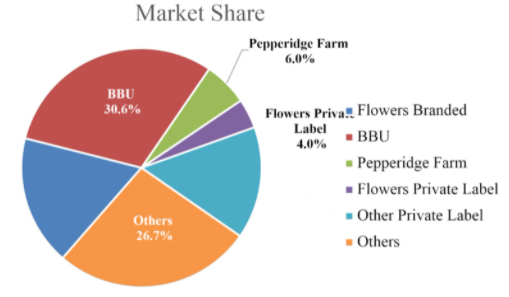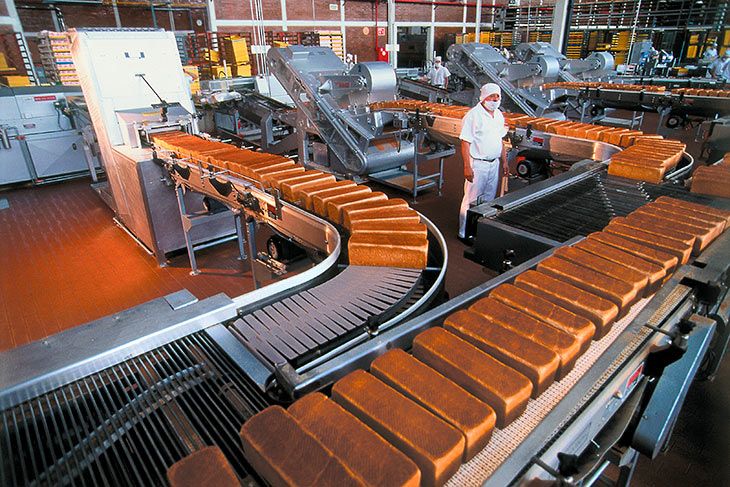Bimbo Bakeries USA (BBU), a subsidiary of Mexico‘s Grupo Bimbo, leads the U.S. bakery market, according to Flowers Foods.
The U.S. market for fresh and frozen bakery products is estimated at $43.2 billion at retail.
This category is intensely competitive and has continued to experience consolidation.
Flowers Foods is currently the second largest company in the U.S. fresh bakery industry based on the market share presented in the chart below:

Amounts were rounded and take as basis IRI Flowers data, considering 52 weeks, ending December 26, 2021 and Flowers’ private label sales from SDW.
Grupo Bimbo
The current competitive landscape for bread and rolls in the U.S. bakery sector consists of BBU, Flowers Foods and Campbell Soup Company, under the Pepperidge Farm brand, along with a number of smaller independent regional bakeries, local bakeries and retailer-owned bakeries.
Some of these smaller regional bakeries do not enjoy the competitive advantages of larger operations, including greater brand awareness and economies of scale in purchasing, distribution, production, information technology, advertising and marketing.
However, size alone is not enough to guarantee success in the industry.
Flowers Foods faces significant competition from regional and independent bakeries in certain geographic areas.
Competition in the bakery sector continues to be driven by a number of factors, including the ability to serve retail and foodservice customers, generational changes in family-owned businesses, and competitors’ promotional efforts in branded bread and store brands.
Also, competition is often based on the ability to target changing consumer preferences, product availability (including through e-commerce channels), product quality, brand loyalty, price and effective promotions.
Also customer service, including frequent deliveries to keep store shelves well stocked, is a competitive factor.
As of January 1, 2022 Flowers and its subsidiaries had approximately 8,900 employees located throughout the U.S. and approximately 4,300 long-term leased employees. Approximately 970 employees are covered by collective bargaining agreements and there are no material outstanding labor disputes.
![]()

